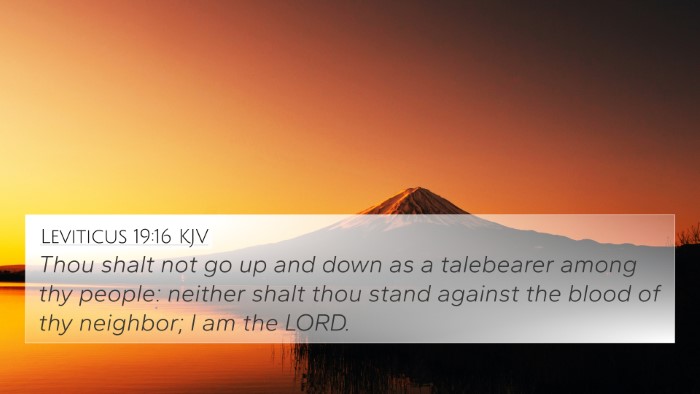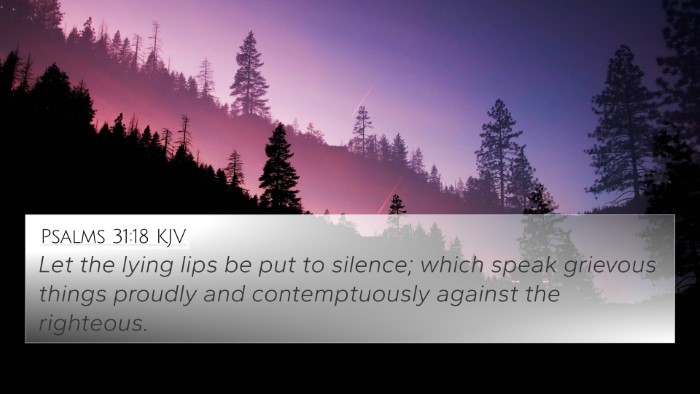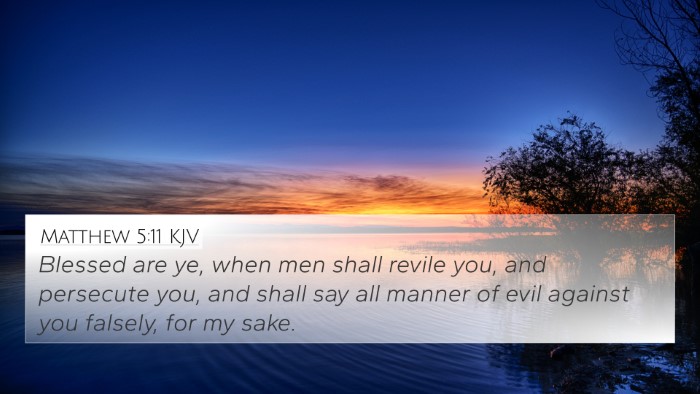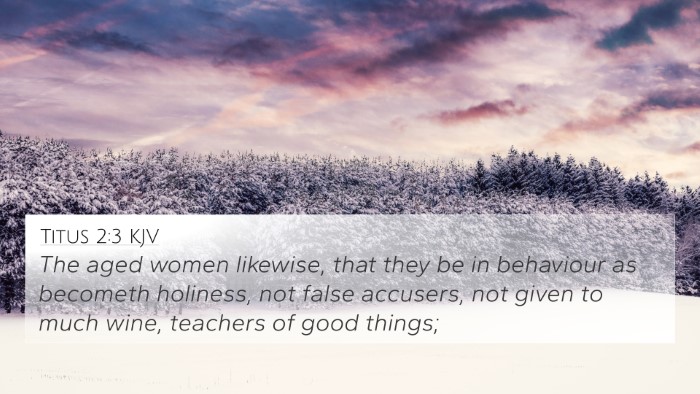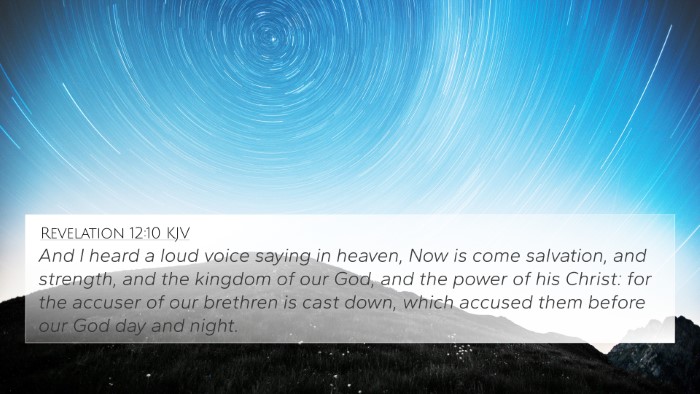Understanding Psalms 50:20
Bible Verse: Psalms 50:20 - "You sit and speak against your brother; you slander your own mother’s son."
Overview of the Verse
This verse captures the gravity of slander and falsehood among brethren, illustrating the deep consequences of such actions on familial and communal relationships. It serves as a divine reminder that our words hold significant power, and thus require careful consideration.
Commentary Insights
Matthew Henry's Commentary
Henry emphasizes the moral implications of slander, noting that to speak against one's brother is akin to attacking one's own family. He suggests that such behavior not only damages the individual character of the slanderer but also undermines the sanctity of familial bonds. This passage warns against hypocrisy, where one may appear religious yet harbor ill thoughts or words against those close to them.
Albert Barnes' Commentary
Barnes reflects on the idea of speaking against a brother, interpreting it as a betrayal of trust and love that should exist within a community. He notes that slander can arise from envy or bitterness, ultimately leading to spiritual repercussions. Beyond merely social consequences, Barnes stresses the importance of accountability before God for our words and actions.
Adam Clarke's Commentary
Clarke delves into the societal implications of slander, emphasizing how detrimental such gossip can be to community harmony. He elaborates on the necessity for self-reflection, urging readers to consider their own faults before casting judgment on others. Clarke highlights that this verse serves as a poignant reminder to maintain integrity in speech, linking it back to the greater theme of love and unity among believers.
Related Bible Cross References
- James 4:11: "Do not speak evil of one another, brethren..." - A direct admonition against slander.
- Proverbs 10:18: "Whoever hides hatred has lying lips..." - Illustrates the impact of concealed resentments.
- Matthew 18:15: "If your brother sins against you, go and tell him his fault..." - Encourages conflict resolution and forgiveness.
- 1 Peter 2:1: "So put away all malice and all deceit and hypocrisy and envy..." - A call to reconciling community relations.
- Galatians 5:15: "But if you bite and devour one another, watch out that you are not consumed by one another." - Warnings about destructive behaviors.
- Ephesians 4:31: "Let all bitterness and wrath and anger and clamor and slander be put away from you..." - A directive for mutual respect among believers.
- Proverbs 16:28: "A dishonest man spreads strife, and a whisperer separates close friends." - Highlights the divisive nature of slander.
Thematic Connections
This verse invites a deeper exploration of slander and its ramifications throughout the Scriptures. By cross-referencing with related verses, we delve into a broader understanding of God's expectations for interpersonal relationships:
- Links Between Old and New Testament: Both testaments echo the vital importance of maintaining purity in speech.
- Comparative Bible Verse Analysis: Examining how various scriptures address gossip and slander reveals a cohesive biblical message.
- Inter-Biblical Dialogue: Connections between teachings of the prophets and the New Testament teachings further elaborate the consistent call for integrity.
Practical Applications
Understanding Psalms 50:20 provides practical implications for daily life:
- Guard Your Tongue: Regular self-checks to avoid harmful speech.
- Encourage Open Communication: Promote dialogue over gossip.
- Use Biblical Accountability: Building relationships founded on truth encourages accountability.
Conclusion
Psalms 50:20 acts as a profound reminder of the moral obligations inherent in our speech. By considering the insights of commentators and the cross-references provided, one can cultivate a compassionate community, rooted in love and mutual respect.




